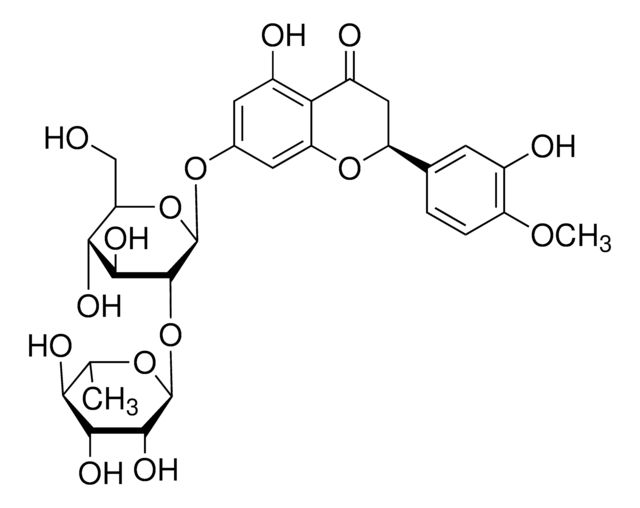N3393
Naphthol Blue Black
BioReagent, suitable for electrophoresis
Synonyme(s) :
Acid Black 1, Amido Black 10B, Buffalo Black NBR
About This Item
Produits recommandés
Gamme de produits
BioReagent
Niveau de qualité
Forme
powder
Composition
Dye content, ~85%
Technique(s)
protein staining: suitable
Impuretés
≤10% water
Adéquation
suitable for electrophoresis
Chaîne SMILES
[Na+].[Na+].Nc1c(\N=N\c2ccc(cc2)[N+]([O-])=O)c(cc3cc(c(\N=N\c4ccccc4)c(O)c13)S([O-])(=O)=O)S([O-])(=O)=O
InChI
1S/C22H16N6O9S2.2Na/c23-19-18-12(11-17(39(35,36)37)21(22(18)29)27-24-13-4-2-1-3-5-13)10-16(38(32,33)34)20(19)26-25-14-6-8-15(9-7-14)28(30)31;;/h1-11,29H,23H2,(H,32,33,34)(H,35,36,37);;/q;2*+1/p-2/b26-25+,27-24+;;
Clé InChI
AOMZHDJXSYHPKS-DROYEMJCSA-L
Vous recherchez des produits similaires ? Visite Guide de comparaison des produits
Application
Actions biochimiques/physiologiques
Mention d'avertissement
Warning
Mentions de danger
Conseils de prudence
Classification des risques
Skin Sens. 1B
Code de la classe de stockage
11 - Combustible Solids
Classe de danger pour l'eau (WGK)
WGK 1
Point d'éclair (°F)
Not applicable
Point d'éclair (°C)
Not applicable
Équipement de protection individuelle
dust mask type N95 (US), Eyeshields, Gloves
Certificats d'analyse (COA)
Recherchez un Certificats d'analyse (COA) en saisissant le numéro de lot du produit. Les numéros de lot figurent sur l'étiquette du produit après les mots "Lot" ou "Batch".
Déjà en possession de ce produit ?
Retrouvez la documentation relative aux produits que vous avez récemment achetés dans la Bibliothèque de documents.
Les clients ont également consulté
Notre équipe de scientifiques dispose d'une expérience dans tous les secteurs de la recherche, notamment en sciences de la vie, science des matériaux, synthèse chimique, chromatographie, analyse et dans de nombreux autres domaines..
Contacter notre Service technique














